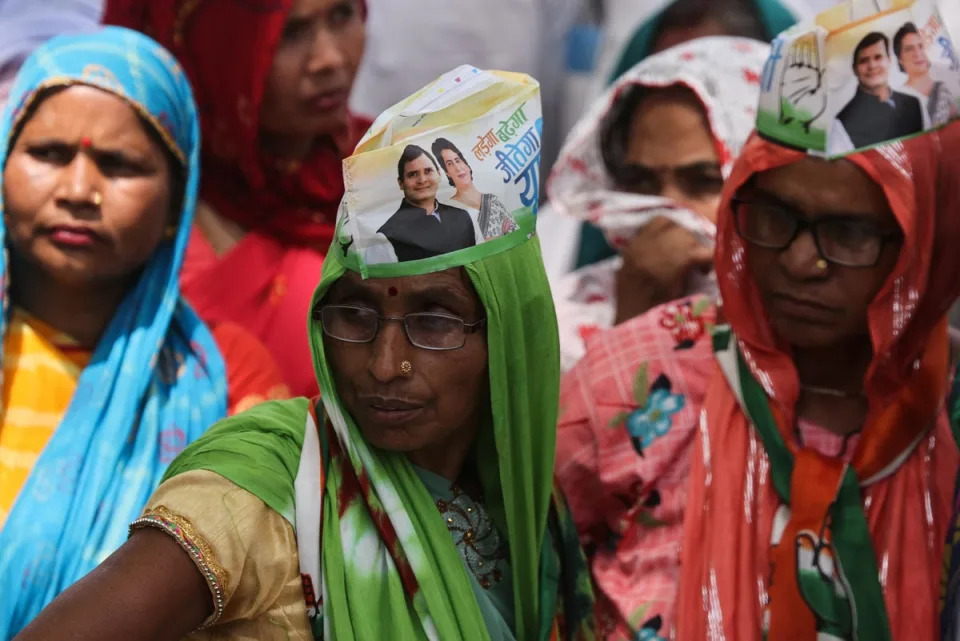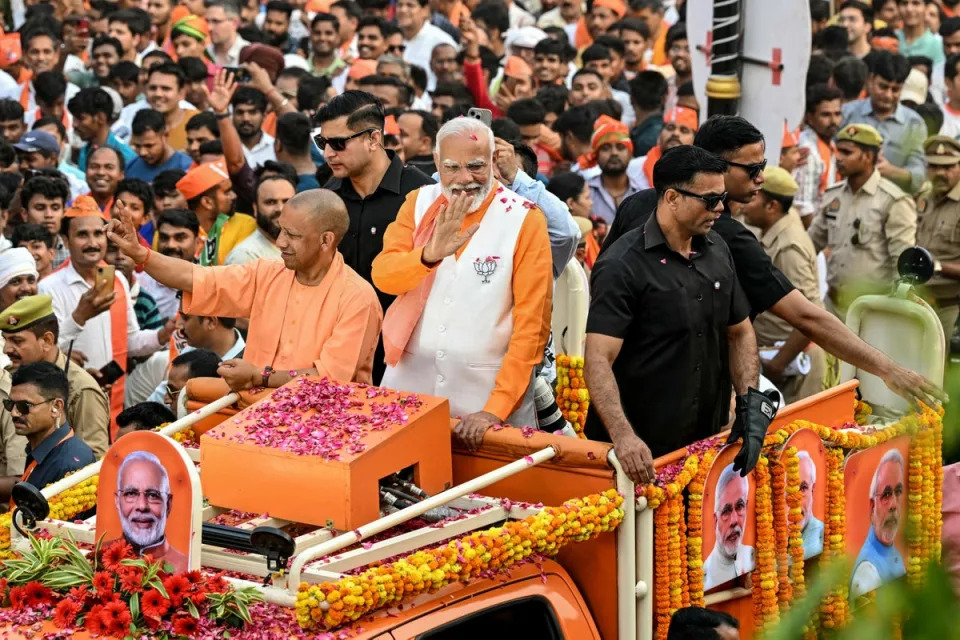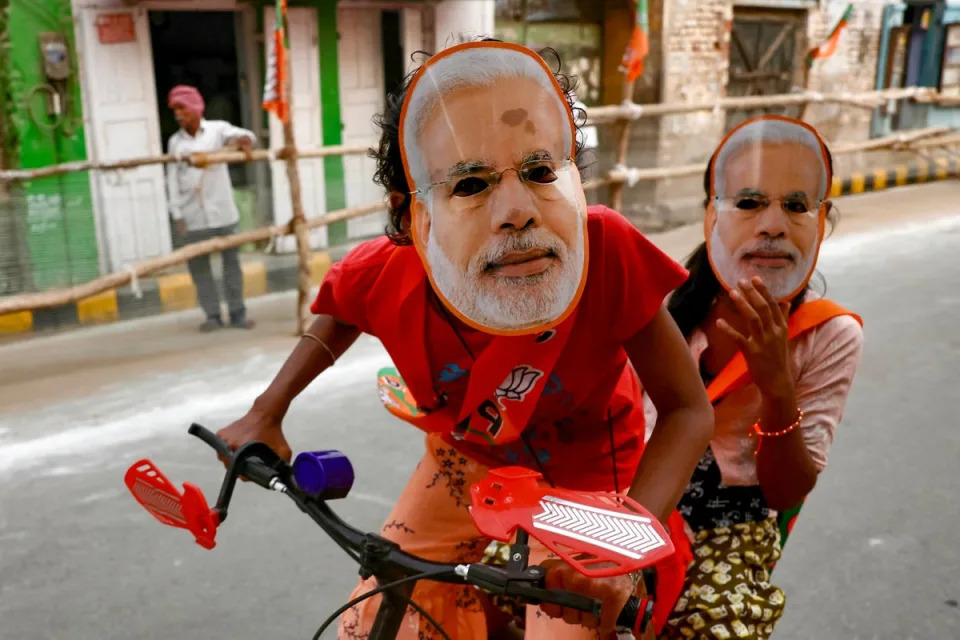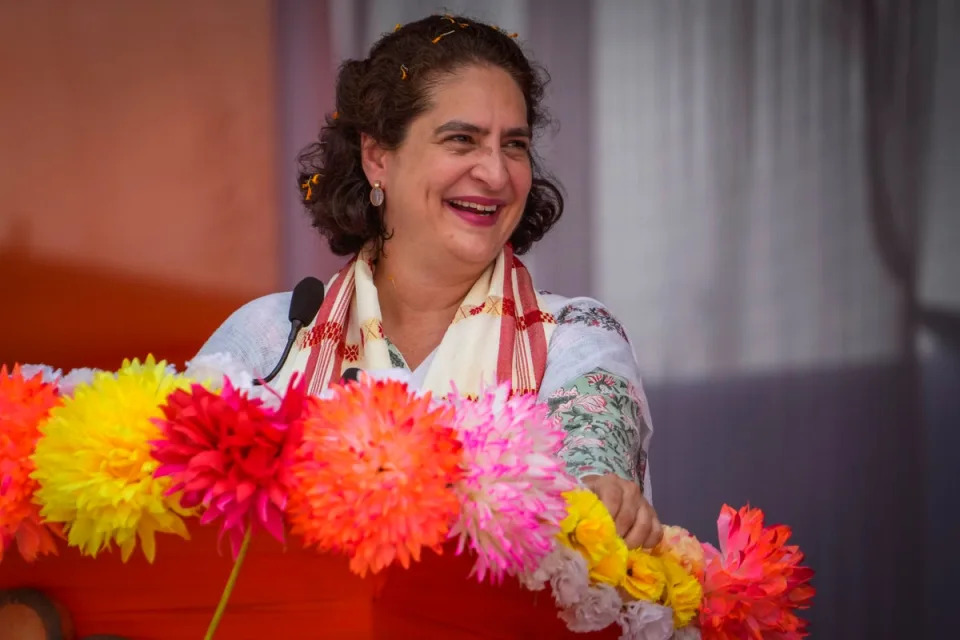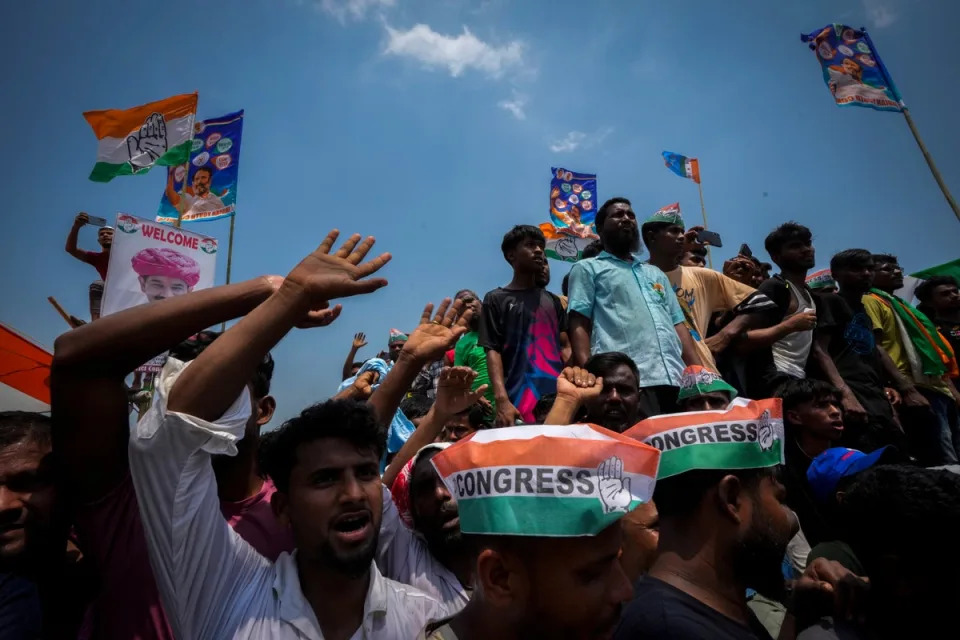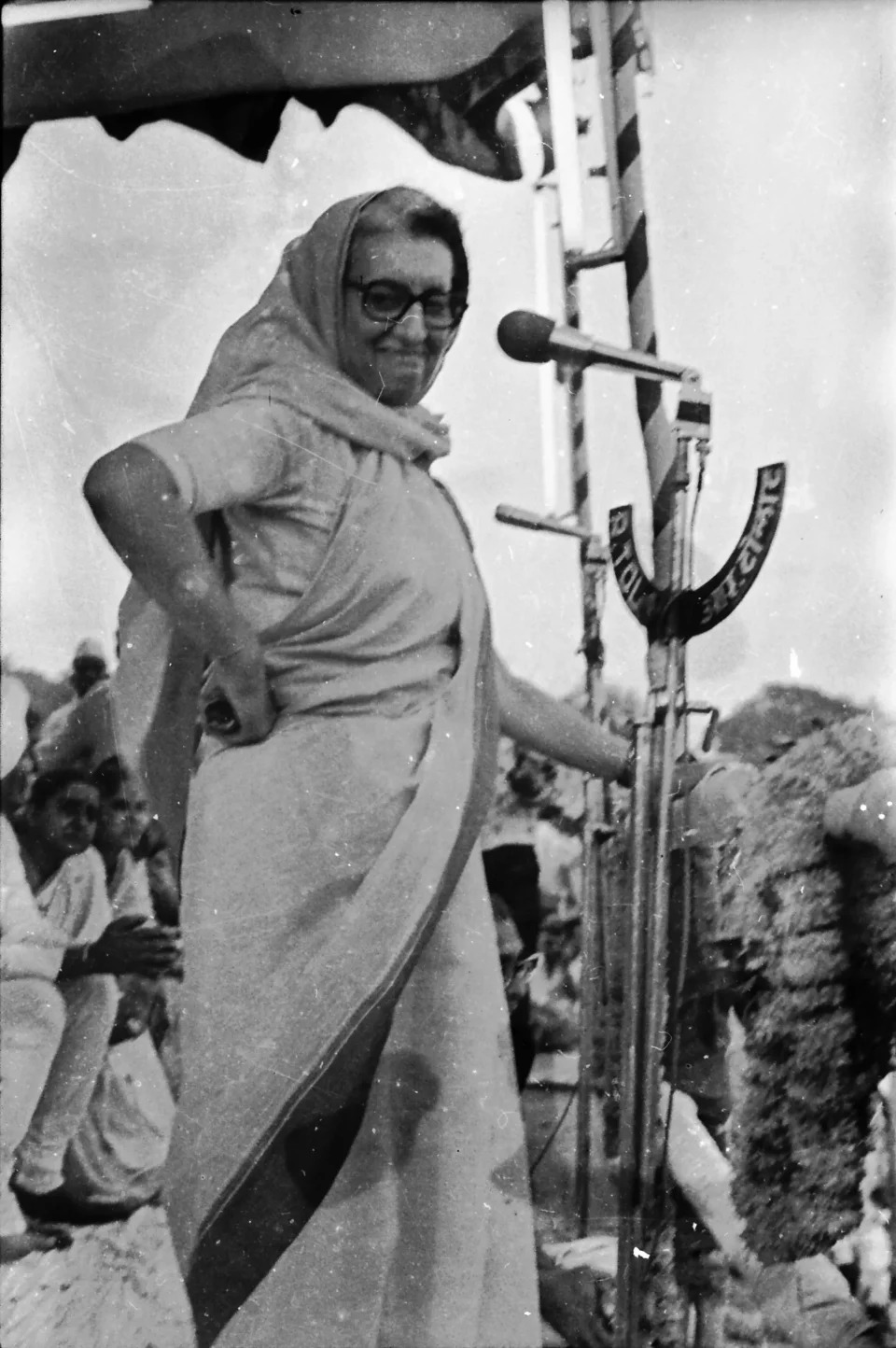Communist Party of India Marxist-Leninist
9 June, 2024
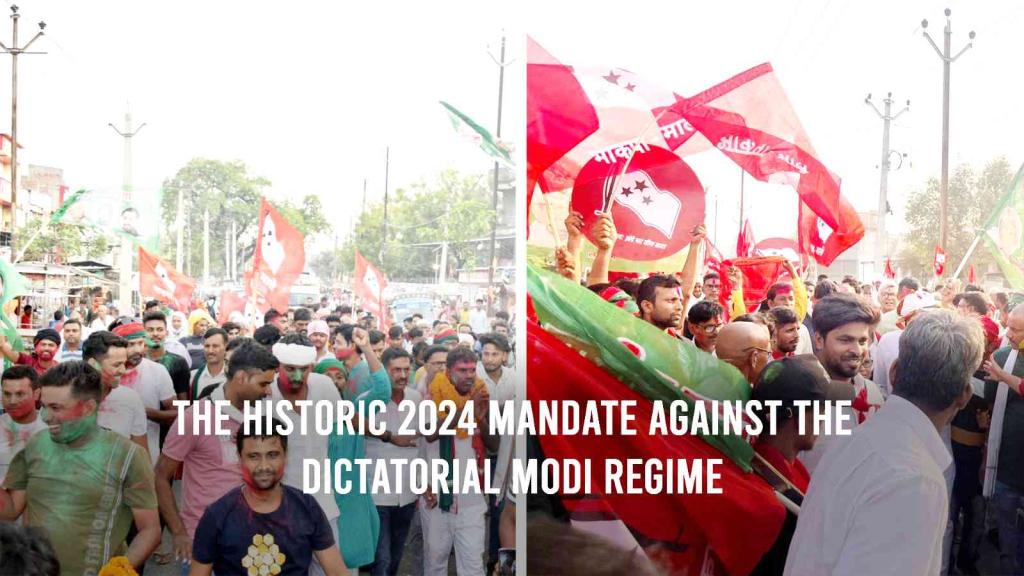
[Editor’s note: Clifton D'Rozario, from the Communist Party of India (Marxist-Leninist) Liberation, will be speaking at Ecosocialism 2024, June 28–30, Boorloo/Perth, Australia. For more information on the conference visit ecosocialism.org.au.]
First published at CPI(ML) Liberation.
Democracy in India received a powerful and much-needed shot in the arm in the 2024 elections. It was an election in which no Modi jumla worked, and the BJP found itself almost clueless in the face of a massive assertion of the people's core agenda of livelihood and liberties and determination to save the Constitution and the rich diversity of India. It was the most unequal of India's elections till date, conducted by an Election Commission that couldn't care less for its constitutional responsibilities and accountability and behaved as an extension of the executive. The opposition did belatedly come together but admittedly lacked the kind of cohesion, clarity and dynamism demanded by the situation, yet the people made it work and used it as a vehicle to channelise their energy against the rampaging fascist bulldozer. Beyond the architecture of the INDIA coalition, the election truly became a people's movement on the ground, supported by the committed involvement of civil society activists and the highly effective and dedicated community of digital warriors.
2024 could not possibly be a repeat of 1977. A key reason is that while the 1977 election took place after the withdrawal of the Emergency, 2024 was happening in the middle of a relentless reign of terror and repression that did not need a formal declaration. 2024 was not 2004 either. The BJP in 2004 was not as powerful as the Modi era BJP and the opposition, especially the Congress, Left and the regional and social justice camp parties not as weakened as they have been rendered over the decade-long Modi rule. Yet in the history of India's parliamentary democracy, 2024 elections will be remembered for producing a truly historic verdict at a very critical juncture of modern India.
What made it especially effective was the emphatic nature of the verdict in India's three biggest states in terms of parliamentary strength - Uttar Pradesh, Maharashtra and West Bengal. The great showing of the SP-Congress combine in Uttar Pradesh in spite of the RLD joining the NDA and the BSP playing a highly dubious role at the behest of the BJP has been the high point of the popular assertion against the Modi-Shah-Yogi regime. The victory of the INDIA bloc right in Ayodhya, and the election of a senior Dalit leader in this general seat, powerfully symbolises the outright popular rejection of the Sangh's agenda. Particularly sweet too have been the downsizing of Modi himself in Varanasi, and the defeat of some of the most arrogant faces of the Modi regime like Ajai Mishra Teni from Lakhimpur and Smriti Irani from Amethi. The combination of the energy of the farmers' movement, the anger of the youth against massive unemployment and the Agniveer scheme in particular, and the determination of the Dalit-Bahujan communities and freedom-loving citizens to defend the Constitution turned the election into a mass upheaval in many parts of the country.
In spite of the apparently disparate and variegated nature of the election outcome, it will be wrong to see the mandate just as a sum of multiple state elections. True, the BJP has managed to tap into the political vacuum and ride on the popular yearning for change in states like Odisha and Andhra Pradesh where elections were held simultaneously to the state assemblies, but the poll outcome clearly conveys an all-India message against the Modi regime. And if anyone needed a proof, let us just look at the emphatic nature of the results from West Bengal where the TMC government had a lot of anti-incumbency, the INDIA bloc remained divided and it was believed by many that the Lok Sabha elections would be reduced to a referendum on the performance of the state government. In fact, the BJP has lost votes and seats across India with the exception of a few states like Odisha and Andhra where the incumbent state governments were voted out and the southern states of Tamil Nadu, Kerala and Telangana where the BJP continues to grow in terms of vote share which has now also begun to translate into seats. The fact that the BJP received its biggest blow in Uttar Pradesh, the state that has been so central to the rise and consolidation of fascism in India, underlines the core content of the 2024 mandate.
Even though the INDIA coalition has underperformed in Bihar, the best performance has once again come from the south Bihar region of Shahabad and Magadh. Of the eight seats that went to the polls in this region on the last day, INDIA has won six and put up a great fight in the other two. The CPI(ML) played an anchor role in shaping this unity and assertion of the forces fighting for democracy and social justice, contested three of these eight seats and won two. In addition, the party also had to face an Assembly by-poll in Agiaon(SC) seat in Bhojpur caused by the disqualification of party MLA Manoj Manzil due to conviction in a politically motivated false case, which the party won with a comfortable margin. Jharkhand was the other state where the CPI(ML) fielded a candidate with the backing of the INDIA bloc but finished a rather distant second. It remains to be analysed why the anti-BJP thrust of the popular vote in Jharkhand remained confined only to the five ST reserved seats. While campaigning vigorously against the BJP across the country, the party paid special attention to the seats allotted to it in Bihar and Jharkhand.
The representation of the Left in Parliament got an encouraging boost with the victory of three MPs from the Hindi belt - two CPI(ML) MPs from Bihar and a CPI(M) MP from Rajasthan - in addition to the existing strength of six from the southern states of Tamil Nadu and Kerala. The rise of a more assertive and united opposition within Parliament and beyond is the biggest gain of the 2024 elections apart from the resounding rebuff to the Modi regime that marginally fell short of the numbers needed to vote the NDA out of office. With the support of parties like TDP and JDU, the NDA may have the numbers to form the government, but leaders like Modi, Shah and Yogi who have lost the mandate have no moral right to remain at the helm of the new government. The previous Speaker had disgraced the Speaker's office by his partisan conduct which condoned hate speech against fellow parliamentarians while stifling democratic debate and dissent and the new Parliament must have a non-BJP Speaker to restore healthy environment and respect for democracy and parliamentary decorum. India has heaved a huge sigh of relief with the BJP's loss of outright majority and the battle to deliver a more crushing defeat to fascism must now be carried on with greater unity, courage and determination to rein in the executive, restore the constitutional rule of law and undo the damages done to India's social fabric and federal framework.
Communist Party of India Marxist-Leninist Liberation
5 June, 2024
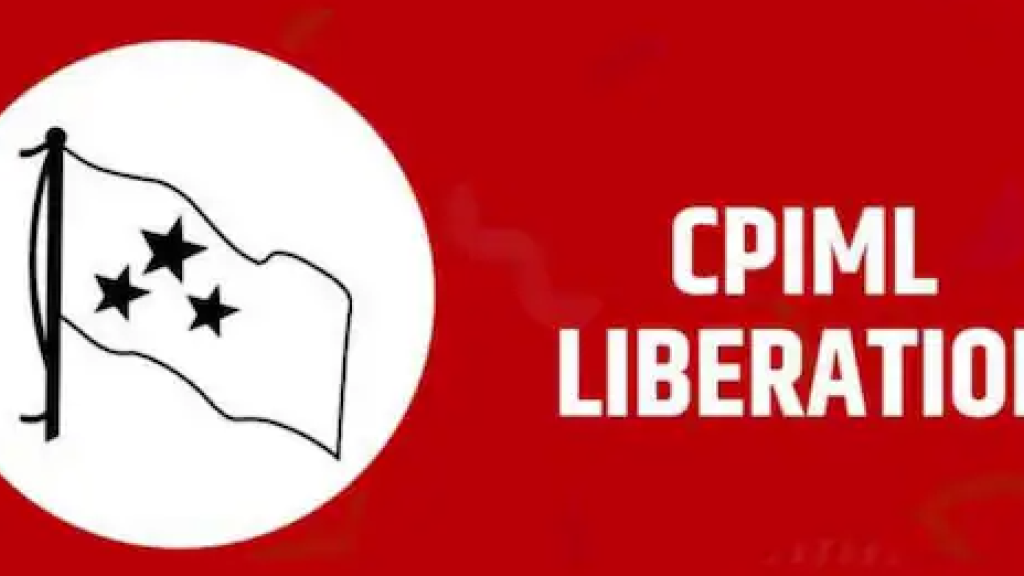
[Editor’s note: Clifton D'Rozario, from the Communist Party of India (Marxist-Leninist) Liberation, will be speaking at Ecosocialism 2024, June 28–30, Boorloo/Perth, Australia. For more information on the conference visit ecosocialism.org.au.]
The Lok Sabha election results are a mandate against Modi's dictatorship, and is a victory for democracy and Constitution, said CPI(ML) Liberation's General Secretary Comrade Dipankar. The performance of the INDIA alliance in Uttar Pradesh has paved way for the success of the alliance in the country, which is a befitting reply to the BJP and a rejection of the regime led by Narendra Modi and Amit Shah, he said. The livelihood crisis of the people and the divisive policies adopted by the BJP has also been defeated.
In Bihar, CPI(ML) has won in two out of the three constituencies it contested. In Karakat, Comrade Rajaram Singh and in Arrah, Comrade Sudama Prasad have won. Dr. Sandeep Saurav was the runner up in Nalanda LS constituency. CPIML had also contested as part of the INDIA alliance in Kodarma (Jharkhand), where sitting MLA of Bagodar Comrade Vinod Singh was the candidate. It must be noted that after the disqualification of Comrade Manoj Manzil as the MLA from Agiaon in Bihar, due to his conviction in a politically motivated case, Agiaon had bypolls, in which Comrade Shivprakash Ranjan of CPIML has won. CPIML also contested independently from Kakinada in Andhra Pradesh, Koraput in Odisha and Bardhaman Purba in West Bengal.
CPIML welcomes the mandate of the people of the country. Our fight for democracy and the Constitution shall continue!












